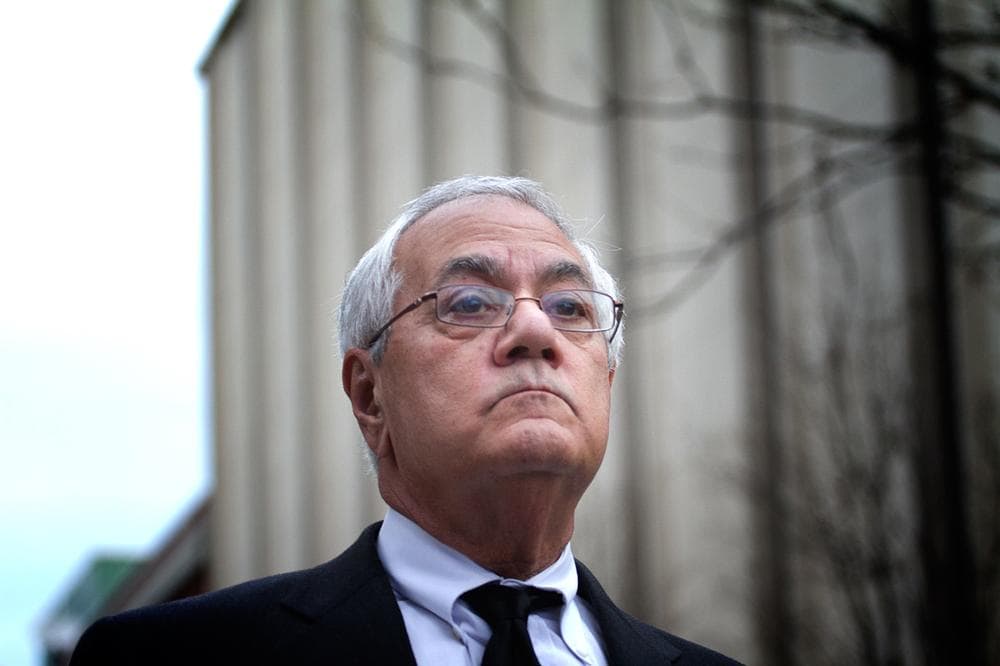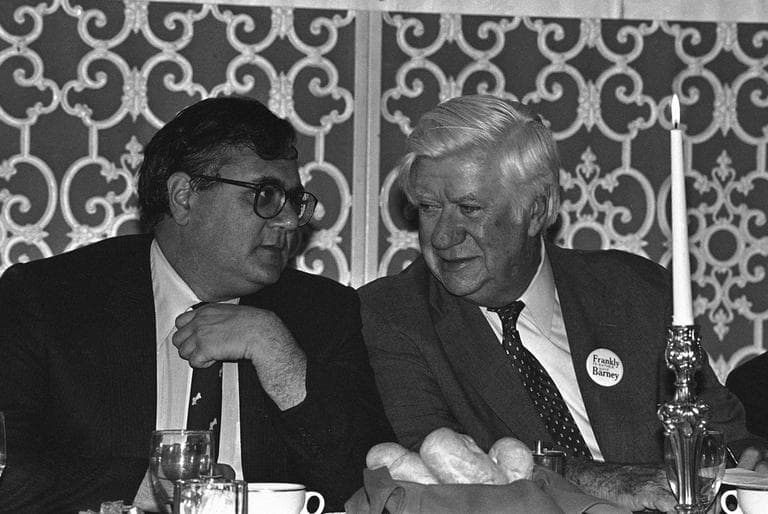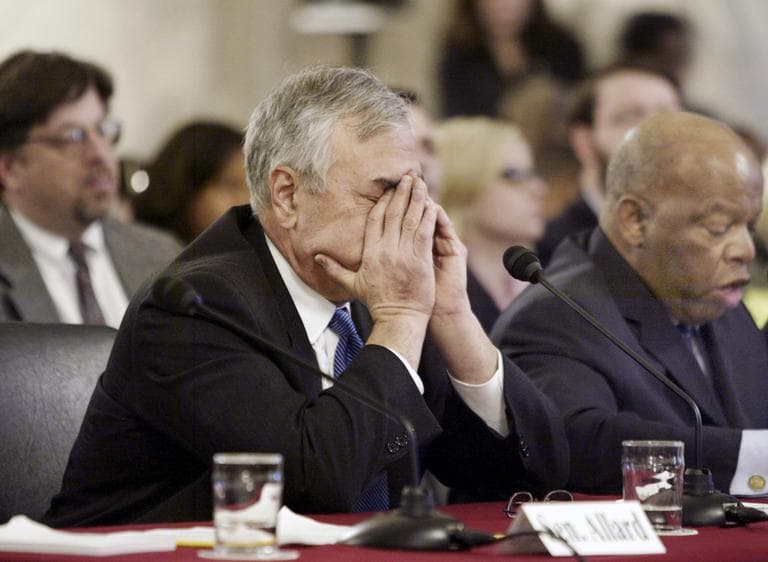Advertisement
Rep. Frank Looks Back On Long Congressional Career

The changing of the guard on Capitol Hill this January means the exit of one of Massachusetts' most influential and atypical congressmen.
Rep. Barney Frank has spent 40 years serving the commonwealth, first as a state representative in the 1970s and then for 16 terms in the U.S. Congress, pushing through the landmark Dodd-Frank financial reform law.
Frank has always been a student of history, direct, and one who doesn't suffer fools gladly.
We went to his office in Newton this week, where Frank opened the conversation by quizzing me about the faces in a photograph of state lawmakers from the 1970s. I recognized some, but I think Frank could have named them all.
On Retirement
Newly married, Frank says he's looking forward to retiring.
"In some ways, I think I may have more of an impact on the public debate being out of office because people screen what elected officials say through a pretty heavy veil of skepticism," Frank said.

The Newton Democrat said he plans to write at least two books when he retires: one about what liberals should do differently and the second about the history of the gay rights movement.
Fiscal Cliff Negotiations
Frank leaves Congress at a time of partisan gridlock, especially as lawmakers struggle to reach a compromise on dealing with the fiscal cliff. He seemed optimistic that a compromise could be reached.
"I think it will get better, not because people suddenly had personality changes and listened to Dr. Phil and decided to get along with each other better," Frank explained. "But because the election of 2012 somewhat broke the tie that was created by the elections in 2008 and 2010.
"Prior to this election, both sides were dug in saying, 'I'm not going to give in on anything major before the next election, because I may win it and be able to do better.' "
Now, Frank says lawmakers — specifically Republicans, in his view — are more willing to compromise. That compromise, he says, would likely include "significant" increases in tax revenues of at least $1 trillion as well as cuts to military and domestic spending.
Advertisement
Coming Out
In 1987, Frank was the first congressman to voluntarily announce that he is gay. Then-fellow Massachusetts U.S. Rep. Gerry Studds revealed that he was gay in 1983, but it was because of revelations about an affair he had with a 17-year-old congressional page.
Frank said his only regret in coming out was that he didn't do it sooner.
"I wanted a little dust to settle because we represented adjacent districts in southeastern Massachusetts and it just would have been too much a source of comment," Frank said. "You know, 'What's going on, is there something in the water in Bristol County, Mass.?' "

Frank says he would like other members of Congress to be able to come out but says it should be their own decision, with one exception: those who are gay but vote anti-gay.
"I think there is a right to privacy still, but not a right to hypocrisy, and I have been very critical," he said.
He said he hasn't directly outed anyone during his career, but he's encouraged others to do so, and alluded to one congressman's sexuality — Rep. David Dreier, R-Calif. In 2005, Dreier was in line to become the next speaker of the House, but his name was withdrawn from the running because some Republicans said he was "too moderate."
Frank said when he was asked whether it was true that Dreier was too moderate, he said, "Yes, in the sense that after the moderate pride parade, you might want to go to a moderate bar."
Advice For The Next Congress
But looking forward, Frank said he has two bits of advice for the incoming Congress. The first is to be conscientious of their time, and to say no to many invitations. The second is both practical and a bit personal:
You'll get invited places and they will give you T-shirts and mugs and caps and plaques. And it is very important to not throw anything away within one mile of where it was given to you.
As to questions about how he wants to be remembered, Frank demurred.
"That's not a question you can answer yourself," he said. "I think that leads to either an unattractive arrogance or an unbelievable humility."
To hear the complete Morning Edition interview with Rep. Frank, press play atop this post.
This program aired on November 29, 2012.

